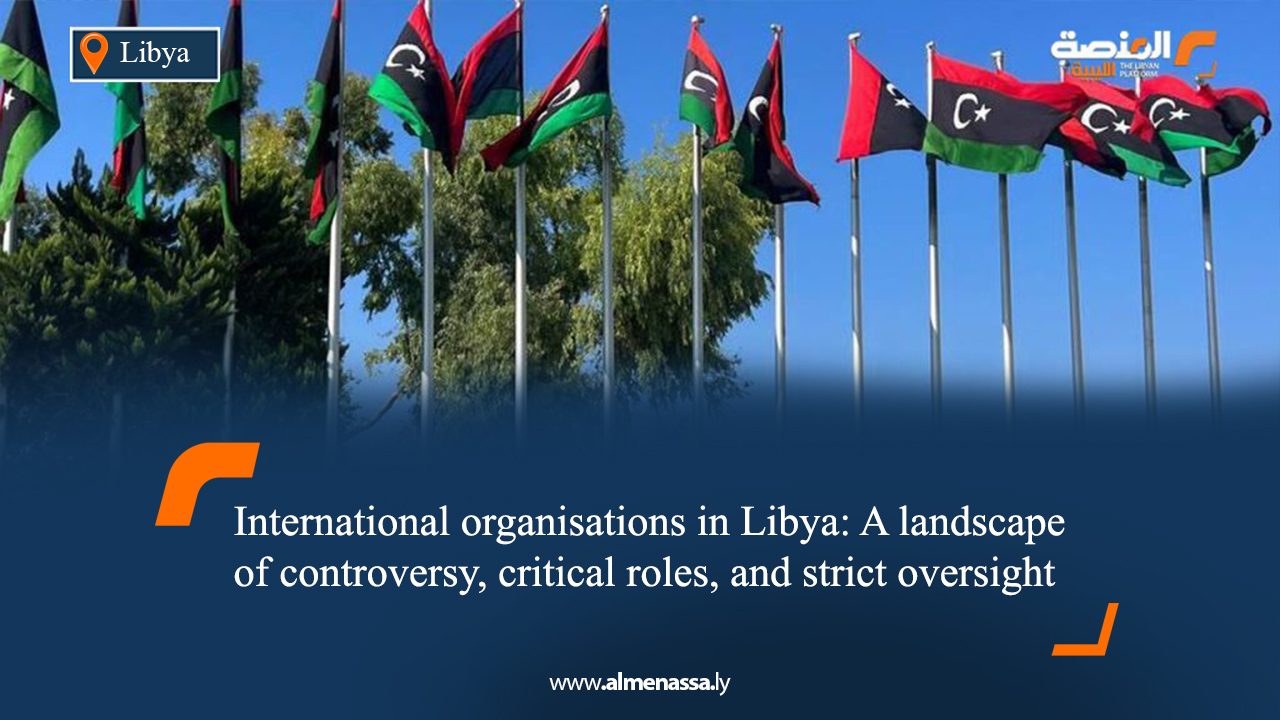A climate of doubt and ongoing debate surrounds the operations of international organisations in Libya. Public opinion is divided between those convinced of the efficacy of their humanitarian role in assisting the most vulnerable groups and those who believe these organisations harbour undeclared objectives not serving the Libyan state’s interests.
Rejection and support: Conflicting views
Opponents of international organisations’ work in Libya view them as a facet of external intervention in the country, suggesting they may seek to influence political decisions and impose specific agendas, alongside meddling in Libya’s internal affairs.
Conversely, supporters of international organisations contend that they provide vital support to needy populations, both Libyan and expatriate. They also believe these organisations contribute to economic and social development, and work to promote human rights and bolster the political process in the country.
Achieving balance: A continuous challenge
Between rejecting and accepting the role of international organisations, it remains clear that they must maintain a delicate balance between fulfilling their mandate and not violating the country’s sovereignty or interfering in its internal affairs. Many organisations have failed to achieve this complex equilibrium, prompting authorities to close 10 of them last April.
In a statement issued by the Internal Security Agency, it elaborated on “security follow-ups concerning suspicious activities in which some international non-governmental organisations were involved as part of an international project hostile to Libya, aiming to settle irregular migrants in the country.” The statement clarified that “the agency detected hostile foreign activity aimed at settling irregular migrants,” asserting that this occurred “after these organisations were harnessed by foreign parties to achieve international aims at the expense of this nation’s people and the country’s sovereignty, exploiting the instability of political, economic, and security conditions.”
“Hostile activity”: Agency clarifications
The agency provided precise details of what it meant by “hostile activity” and how organisations operate in the country, affirming that these humanitarian institutions and their staff “are subject to the penalties and procedures stipulated in local Libyan laws should they commit any crime punishable by the Libyan Penal Code, as these organisations do not enjoy the diplomatic immunity recognised by international conventions.”
Difficulties and challenges facing organisations
Just as international organisations may overstep the bounds of their mandates, they also face numerous difficulties and challenges in performing their role. These bureaucratic hurdles include the difficulty of obtaining necessary permits and licenses to operate, in addition to constant changes in laws and legislation related to international organisations’ work, which complicates or restricts their activities. Furthermore, limited cooperation from authorities with these organisations, coupled with armed conflicts that have destroyed infrastructure and displaced populations, has intensified the challenging operating environment for international organisations.
Official Libyan stance
Regarding the official stance, the Ministry of Foreign Affairs of the Government of National Unity affirmed its commitment to fostering a regulated and open environment for the work of international civil society organisations in Libya, provided they respect national sovereignty and adhere to applicable laws.
The acting head of the Ministry, Al-Taher Al-Baour, stressed the necessity of following approved legal procedures, starting with the Civil Society Organisations Department at the Ministry, and culminating with the Committee for Supporting and Organising Civil Work, chaired by the Council of Ministers, which is the authorised body for granting licenses.
Between praising and criticising the role played by international public organisations in Libya, it remains certain that their humanitarian work is important for supporting vulnerable groups, provided there is strict adherence to the laws and regulations governing their operations, lest they invite suspicion or lose public trust.


